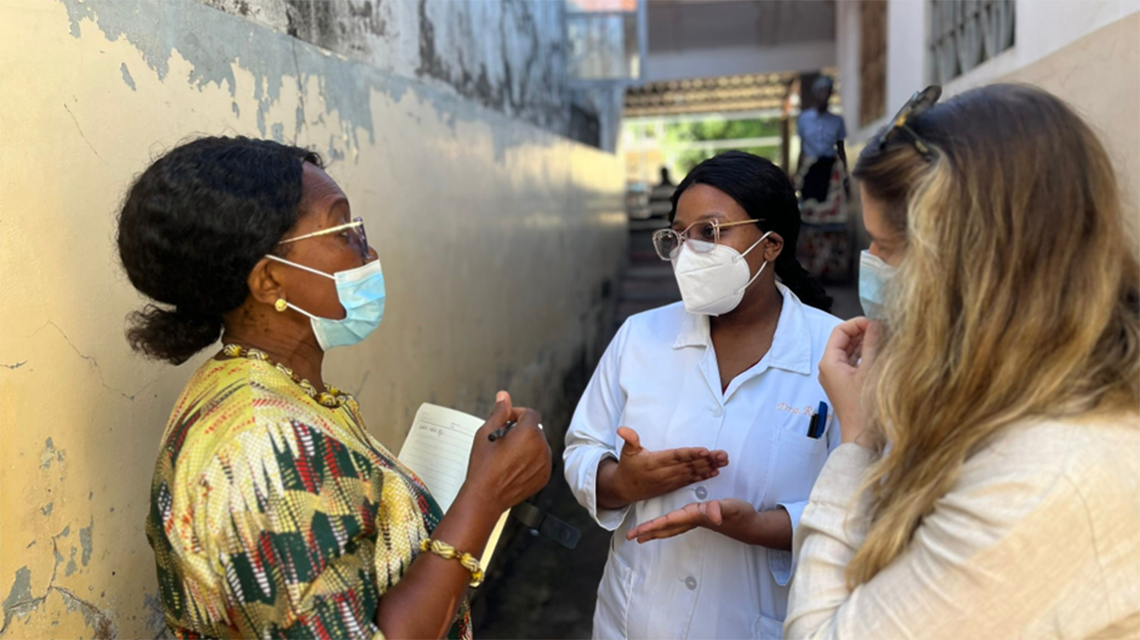Rays of Hope: Expanding Cancer Care Accessibility
Cancer is a formidable health challenge worldwide, and radiotherapy is a critical treatment option that can benefit approximately half of all cancer patients. However, access to this vital technology is not uniformly available across the globe. In countries like Mozambique, the situation is particularly dire, with limited access to radiotherapy facilities. Currently, Mozambique, a nation with a population exceeding 30 million, has only one radiotherapy unit located in its capital city, Maputo. This severe shortage means that many cancer patients in Mozambique are unable to receive the life-saving treatment they desperately need.
Establishing additional radiotherapy facilities in Mozambique is not a straightforward task. It involves a multifaceted approach, requiring the construction of new infrastructure or the optimization of existing resources. Additionally, there is a pressing need for sophisticated equipment and extensive training programs to ensure that healthcare professionals are adequately prepared to operate these facilities. These professionals must also be well-versed in radiation safety protocols to protect both patients and staff.
To address these challenges, Mozambique has joined forces with the International Atomic Energy Agency (IAEA) under the "Rays of Hope" initiative in 2023. This initiative is a global effort aimed at closing the gap in cancer care by enhancing access to radiotherapy services. The IAEA, a specialized agency of the United Nations, is dedicated to promoting the peaceful use of nuclear energy, including its applications in medicine.
Hua Liu, the IAEA Deputy Director General and Head of the Department of Technical Cooperation, emphasized the organization’s commitment to Mozambique’s cancer care expansion. "Through Rays of Hope, the IAEA will continue to support the expansion of radiation medicine capacities in Mozambique, in diagnosis as well as treatment, including through support for the development and training of the national cancer care workforce," Liu stated. This initiative underscores the IAEA’s dedication to improving global healthcare by providing technical expertise and resources to nations in need.
A key component of the "Rays of Hope" initiative is the implementation of ImPACT Reviews. These reviews are crucial for countries seeking to enhance their radiotherapy services and overall cancer control strategies. ImPACT Reviews involve international teams of cancer control experts collaborating with national counterparts to assess the current state of cancer care. They provide valuable insights and recommendations for planning and investing in cancer control infrastructure and services.
ImPACT Reviews serve as a cornerstone for strengthening national cancer care systems. By offering a comprehensive evaluation of existing resources and identifying areas for improvement, these reviews enable countries like Mozambique to make informed decisions about where to allocate their resources. The ultimate goal is to establish a robust and sustainable cancer care system that can effectively meet the needs of the population.
As Mozambique takes these important steps to improve its cancer care capabilities, it is also prioritizing specific cancer types that disproportionately affect women and children. These vulnerable populations often face unique challenges in accessing healthcare services. By focusing on cancers that impact these groups, Mozambique aims to reduce cancer-related mortality rates and improve overall health outcomes.
For more information on Mozambique’s efforts to prioritize cancers affecting women and children, you can refer to the detailed article available on the IAEA’s website.
Good to Know: The Importance of Radiotherapy in Cancer Treatment
Radiotherapy, also known as radiation therapy, is a medical treatment that uses high doses of radiation to kill cancer cells and shrink tumors. It is a fundamental component of modern cancer care and can be used alone or in combination with other treatments such as surgery and chemotherapy. Radiotherapy works by damaging the DNA of cancer cells, preventing them from growing and dividing.
The effectiveness of radiotherapy depends on various factors, including the type and stage of cancer, the location of the tumor, and the patient’s overall health. For many patients, radiotherapy offers a chance for cure or long-term remission, making it an indispensable tool in the fight against cancer.
Global Perspective: Bridging the Gap in Cancer Care
The unequal distribution of healthcare resources worldwide is a significant challenge in the fight against cancer. While developed countries have well-established cancer care systems, many low- and middle-income countries struggle to provide even basic cancer treatment services. This disparity highlights the urgent need for international collaboration and support to ensure that all patients, regardless of their geographic location, have access to life-saving treatments.
The IAEA’s "Rays of Hope" initiative exemplifies how international organizations can play a pivotal role in bridging this gap. By providing technical assistance, training, and resources, the IAEA is helping countries like Mozambique build the necessary infrastructure to offer comprehensive cancer care.
In conclusion, the partnership between Mozambique and the IAEA represents a significant step forward in addressing the challenges of cancer care accessibility. By expanding radiotherapy services and focusing on vulnerable populations, Mozambique is working towards a future where all cancer patients have the opportunity to receive the treatment they need. This collaborative effort serves as a model for other countries facing similar challenges and reinforces the importance of global cooperation in the fight against cancer.
For more Information, Refer to this article.


































